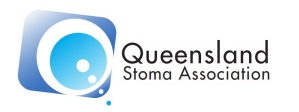Travel delays, lost ostomy supplies, different and frequent changes due to hot or humid climates can play havoc with your usual stoma care routine so anticipate the number of pouches and other accessories that you would normally need for your travel period and then double it. That way you will be ready for anything!
Under Stoma Appliance Scheme rules, persons travelling internationally can apply to their Stoma Associations for up to 6 months supply in advance. Please make sure when planning international travel that you speak with your association will in advance so that the necessary arrangements can be made to provide you with adequate supplies for your travel.
Preparation tip #2 – Have a backup plan if need additional supplies while travelling
Even with the greatest of preparation, the unexpected can happen. Before you leave home, make sure that you know where you can obtain additional products if necessary in the countries you are visiting.
When travelling domestically, financial members of an Australian Stoma Association can obtain assistance or support from any other Australian association.
If travelling internationally, the Australian Government has signed Reciprocal Health Care Agreements (RHCA) with some countries which means that, as an Australian resident, you may be eligible to receive assistance with the cost of medically necessary treatment, including stoma appliances if necessary, while travelling in Finland, Republic of Ireland, Italy, Malta, The Netherlands, New Zealand, Norway, Sweden, United Kingdom, Belgium and Slovenia. It is highly recommended that travellers to these countries check eligibility and entitlement for supply prior to leaving Australia. For more information about Australia’s Reciprocal Health Care Agreements, see here.
To access assistance through an RHCA travellers may need to provide local authorities with:
- an Australian passport or other passport which shows you are a permanent Australian resident and
- a valid Australian Medicare card.
When travelling to a destination that does not have a Reciprocal Health Care Agreement with Australia, stoma appliances may need to be purchased. Unfortunately Medicare reimbursement cannot be obtained for the cost of stoma appliances purchased overseas. The regional organizations listed below may be able to provide information about where to obtain products abroad, or at ports of call on a cruise:
- South Asia Pacific – Asian Society of Stoma Rehabilitation (ASSR)
- New Zealand – The Federation of New Zealand Ostomy Societies Incorporated (FNZOS)
- The Americas – The Ostomy Association of the Americas (OAA)
- International Ostomy Association (IOA)
Preparation tip #3 – Obtain an Ostomy Travel Certificate
An Ostomy Travel Certificate is particularly handy when travelling internationally as it explains why you need pouches, skin barriers, and medications to customs and security personnel at checkpoints. Ostomate Travel Certificates can be obtained in a range of different languages from:
Please note that your GP or Stomal Therapy Nurse will need to countersign your travel certificate so make sure that you arrange this in advance of your travel
Its important to remember that your ostomy appliance may be identified at a security check point, particularly if you are required to enter Body Scanning equipment. Security personal at airports in Australia (domestic and international) are required to adhere to TravelSecure privacy guidelines. Following is an extract from the TravelSecure website:
You may be screened by a body scanner which is designed to detect items worn or carried on the body. It can detect external devices on your body, such as external prostheses, insulin pump, stoma or ostomy pouches. The results of a body scan will only display as a generic human outline with a box overlay on the area of the body where items are located.
When an item is detected, you will be asked to explain what the item is. If it is of a personal nature, you can request this be discussed in a private room and with a screening officer of the same gender. The screening officer may use a hand-held metal detector, an explosive trace detection test or a targeted frisk search of the area to clear the items.
Preparation tip #4 – Have good travel insurance
It is very important when travelling internationally that you have arranged adequate travel insurance cover, particularly if travelling to a country that does not have a Reciprocal Health Agreement with the Australian Government.
As an ostomate, you will have a pre-existing condition that is likely be excluded from travel insurance polices, unless you apply for specific cover and are expressly granted cover in writing. The best approach when shopping for cover then is to be honest and upfront about your pre-existing condition (ie: your stoma and the underlying health condition for which it was created) and ask that your pre-existing condition also be covered. Your GP may be able to assist you in advance by providing you with a letter explaining your pre-existing condition/s, on-going care and how successfully you self-manage without adverse medical outcomes, and by helping you to complete insurers‘ questionnaires.
If cover is granted, you will likely need to pay a policy premium so be prepared!
Preparation tip #5 – Carry some prepared appliance change packs in your hand luggage
